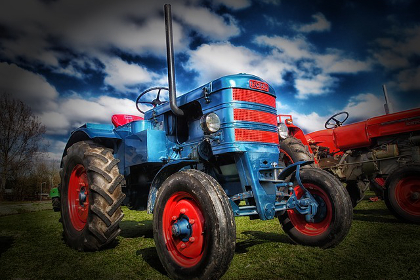
Make America Farm Again?: What Trump Means for Sustainable Farming Policies
For those of us dedicated to healthy eating and ecological-minded food systems, the last eight years have been a time of great optimism. The White House turned a portion of its lawn into an organic vegetable garden for the first time since World War II. The 2008 Farm Bill finally did away with direct subsidy payments and created funding for grants to encourage beginning farmers and ranchers, specialty crops (aka vegetables and fruits), and increased funding for conservation programs that pay farmers to nurture their land’s resources.
December 1, 2016 | Source: NOFA/Mass | by Dan Bensonoff
This article comes from the NOFA/Massachusetts 2016 December Issue Newsletter
For those of us dedicated to healthy eating and ecological-minded food systems, the last eight years have been a time of great optimism. The White House turned a portion of its lawn into an organic vegetable garden for the first time since World War II. The 2008 Farm Bill finally did away with direct subsidy payments and created funding for grants to encourage beginning farmers and ranchers, specialty crops (aka vegetables and fruits), and increased funding for conservation programs that pay farmers to nurture their land’s resources.
But that bubble burst wide open on November 8 with the election of our 45th president, Donald J. Trump. While many of us remain confused and shocked by the results, we also need to prepare for what the next four years of policy might look like. Trump himself mostly steered clear of food and farm policy talk on the campaign trail. But clues abound as to what we as farmers and eaters can expect to change over the next four (or eight) years.
Fighting Against The Good Food Movement
Make no mistake about it, Donald Trump and his advisors have absolutely no interest in agroecological approaches to farming. How do we know this? Well, for one thing, his agriculture advisory team recently released a memo of their talking points and policy priorities, which swore that Trump will "defend American agriculture against its critics, particularly those who have never grown or produced anything beyond a backyard tomato plant." They don’t offer any explanation of what criticisms they are going to be defending American agriculture from, but the rhetoric seems clearly targeted towards urban foodies and locavores like Mark Bittman and Michael Pollan, who’ve made headlines over the past decade criticizing agribusiness.
